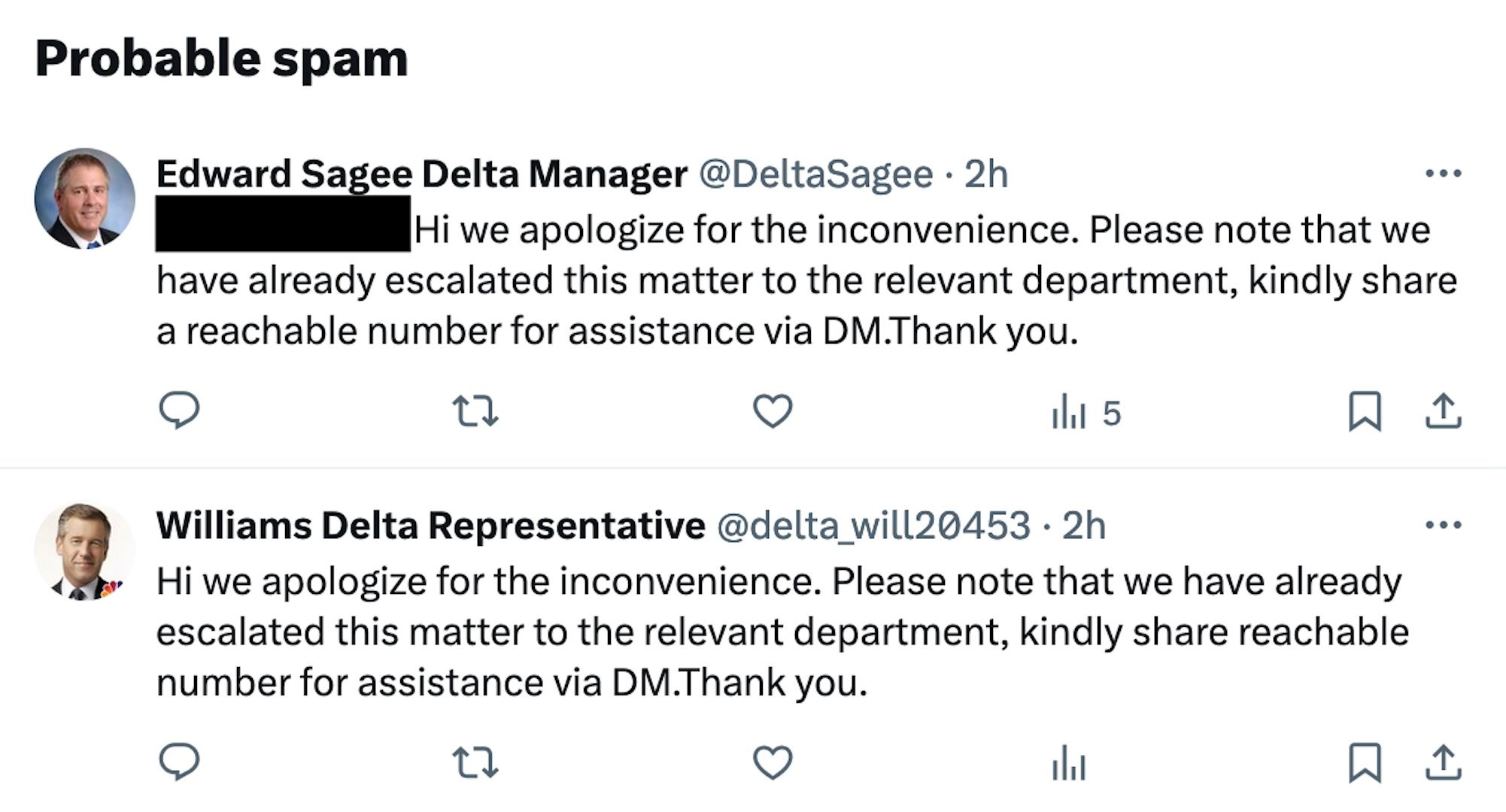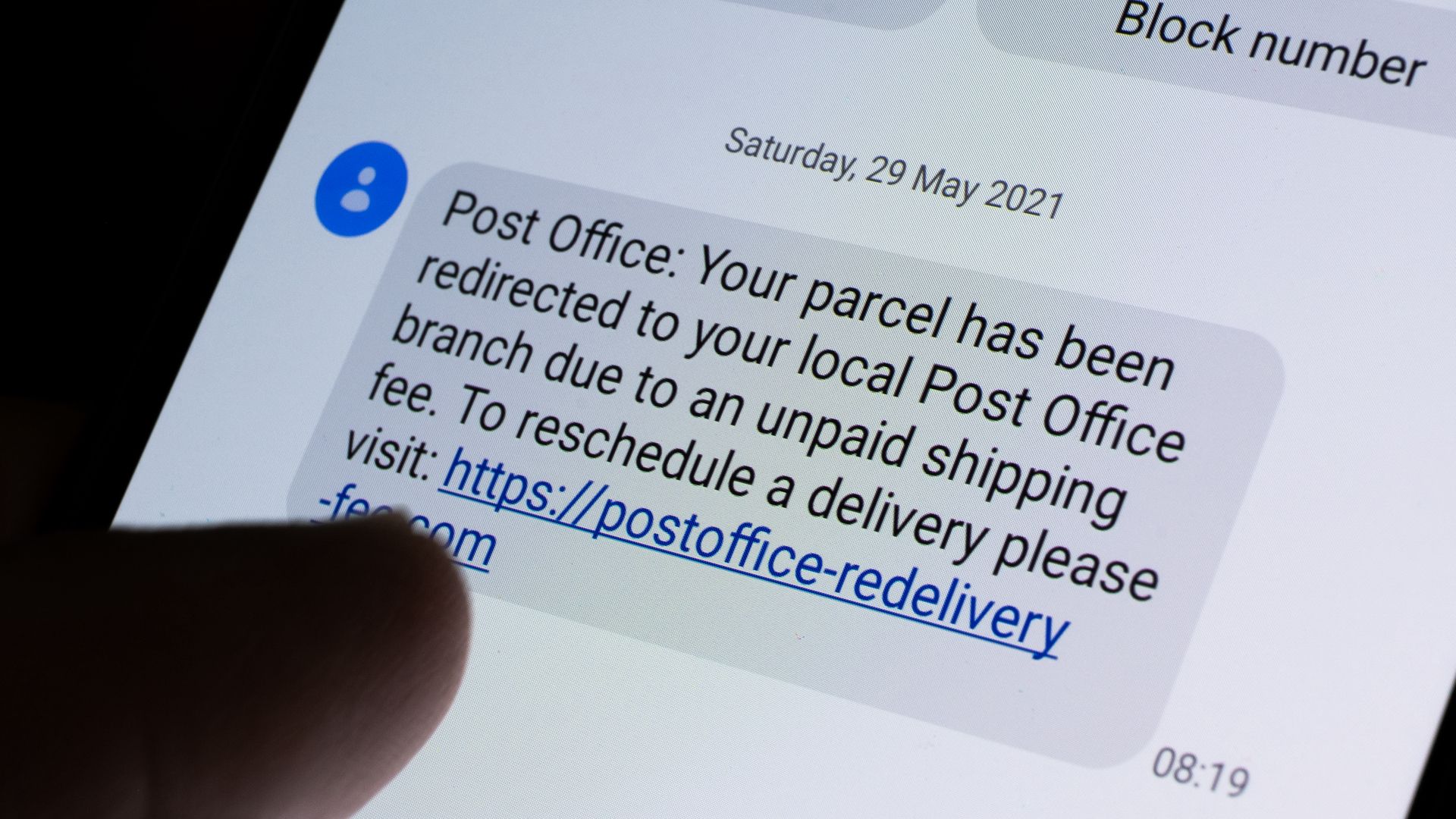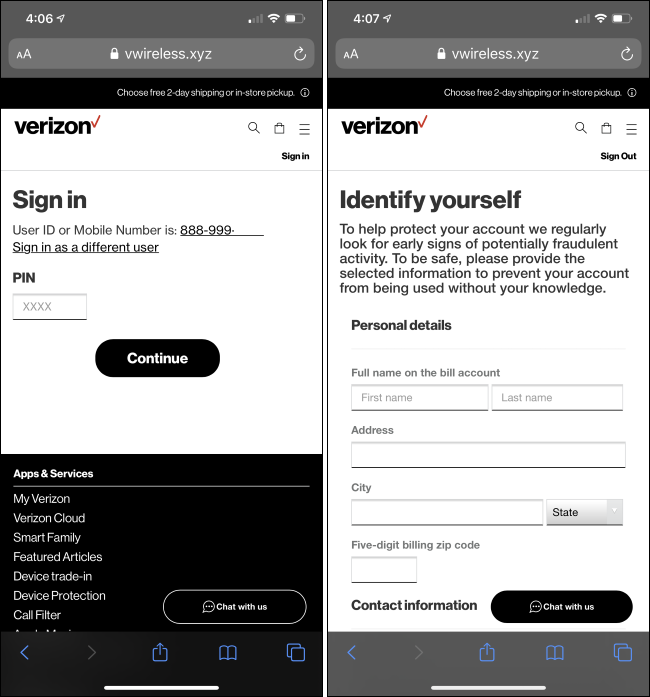As much as upstanding people like us love to take advantage of Black Friday sales, scammers love to take advantage of their desire to shop. Black Friday is an incredibly busy time for scammers, who are always looking to make a buck. This year, you’ll want to keep an eye out for these scams.
1 Account Verification Scams
Account verification scams are pretty common, and usually involve a scammer sending you a message via text or email claiming that there was a suspicious login attempt on some account of yours. The message will also ask you to sign in and verify yourself, similar to a security warning you would get from an actual company.
Be extremely wary of scams such as this, which are super common during the chaos of Black Friday. Scammers like to create a sense of urgency, trying to drive you to act out of fear or concern before you stop to think about things or investigate the legitimacy of the message.
It’s easy to fall for these scams because they often seem to come from legitimate sources at first glance, but be very wary of them, especially if you are asked to click on a link and type in personal information. If you want to be extra safe, call the company for whichever account was supposedly breached and ask them about it directly.
2 False Delivery Notifications
People order all sorts of things online during Black Friday, so this scam is extremely popular around this time. After all, when you are expecting a delivery already, you’re less likely to question this type of scam. In this delivery notification scam, users receive a message about an incoming delivery via email, text, or pop-up message.
The message usually comes from a sender that appears legitimate, but it will usually contain a suspicious link that will take you to track your alleged shipment. Instead, it will take you to a spoofed website domain or something similar.
To combat this scam, also be aware of what you have purchased, who you purchased it from, and even who is shipping your purchases, if you can. If you get a message that isn’t from any of those people, there’s a very high chance that you have a scam on your hands.
3 Billing Error Scams
We’re all getting billed for the things we buy on Black Friday, which makes it really easy to fall for a billing scam. It’s quite similar to a false delivery scam, as in it, a scammer takes on the persona of a legitimate business and sends you some sort of message about how a purchase of yours failed to go through.
The scam tries to prey on your fear of missing out, your concern that the thing you couldn’t wait to buy will never come because your card declined or something similar. These scams will always try very hard to scare you, pushing you to act immediately lest something terrible happen. The scams will often include phone numbers to call or links to click on.
As before, your best defense here is to know what you purchased, who you’ve purchased it from, and how you purchased it. Before freaking out, double-check everything on official websites, and with your bank. They will be able to tell you if a purchase really did fail to go through.
4 Gift Card Scams
We all like to get free stuff, which is why scammers try to catch upstanding citizens with gift card scams. As usual, the goal here is to trick you into providing information you shouldn’t. Usually, this scam involves receiving a message or email, or even a seemingly legitimate post on social media, offering people free gift cards.
You will often be presented with a URL that takes you to a fake website asking you for your information so you can have your reward mailed to you. To protect yourself from this scam, just keep in mind the reality of the world we live in: most businesses aren’t keen to give you stuff for free, and if it seems too good to be true, it probably is.
Plus, if you were going to receive a gift card for free, you probably wouldn’t have to offer up anything like your bank information.
5 Fake Charity Organizations
Unfortunately, scammers aren’t even above taking advantage of goodwill. During times when people are spending a lot of money, scammers will try to guilt them into donating some of it to charity. They will often pose as a charity organization aiming to help people affected by some recent disaster or standing issue.
Committed scammers will even go so far as to make fake websites that look very much like the real deal, adding legitimacy to their operation. The best way to protect yourself from this scam is to do research on any supposed charity organization asking for a donation. Even if the scammer has a website, it shouldn’t be hard to determine how legitimate the organization is from other sources.
6 Fake Coupons or Vouchers
Fake coupon and voucher scams are very similar to fake gift card scams, insofar that the idea is to lure you in with free stuff. In this scam, the threat actor posts links via email, SMS or social media claiming to lead to websites that allegedly offer free vouchers and coupons.
Just like most other scams, the ultimate goal is to push people like you to input your private information, including but not limited to your phone number, email address, passwords you favor, and bank information. The scammer can sell this data to others or use it to attempt to hack into other accounts of yours.
Just like the gift card scam, it falls on you to be wary of free offerings, especially when you have to click on some suspicious link and input your information to access them. Even if you really like the idea of getting a coupon, just consider that it isn’t worth the risk.
7 Website Spoofing Scams
Website spoofing scams are probably one of the scariest to deal with, because they can be very difficult to detect. In this type of scam, a threat actor creates a fake site that looks identical to the real thing. For example, they might make a fake eBay or Amazon that looks just like the real website.
People who don’t realize they are on a fake website go about their business normally, inputting things like their bank information, email, or phone number when they try to buy something. Naturally, that information goes directly to the scammer.
To avoid this scam, pay careful attention to the URL of the shopping sites you visit, as a spoofed website will often have some oddities in the URL that the legitimate website lacks. Spoofed websites can also sometimes have small things like graphics and fonts that don’t match the real website.
Unfortunately, there are tons of scams being thrown around during Black Friday, and even year-round. Even this list doesn’t cover all of the threats you might run into out there. You must be vigilant all the time, and don’t let your excitement for the holidays blind you to the fact that some people are just looking to steal from you.







